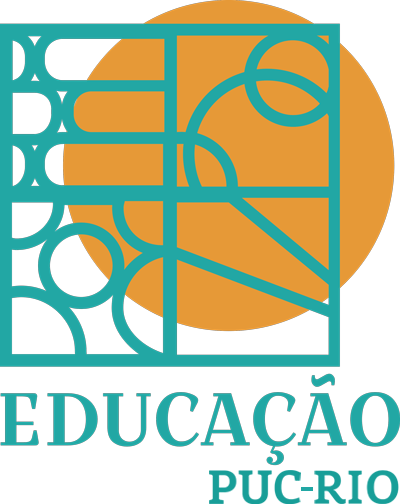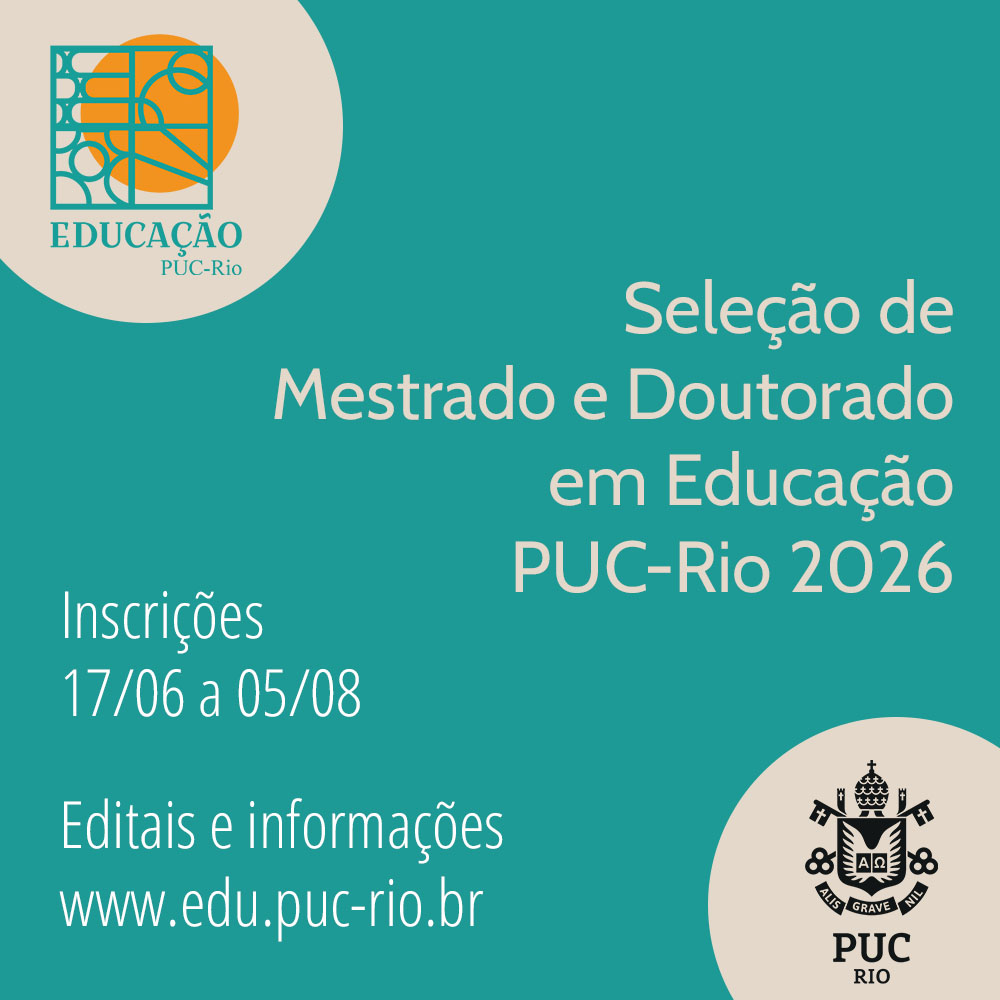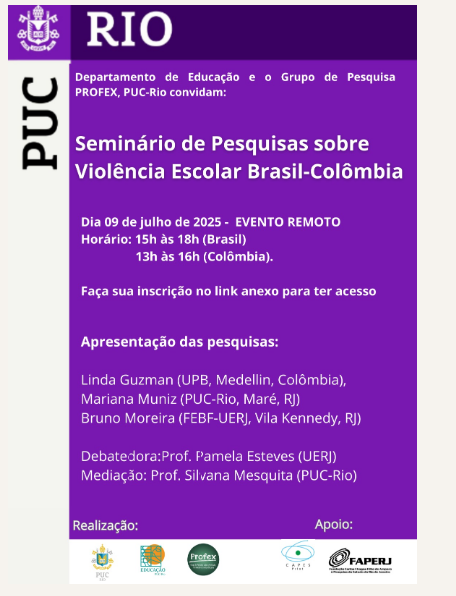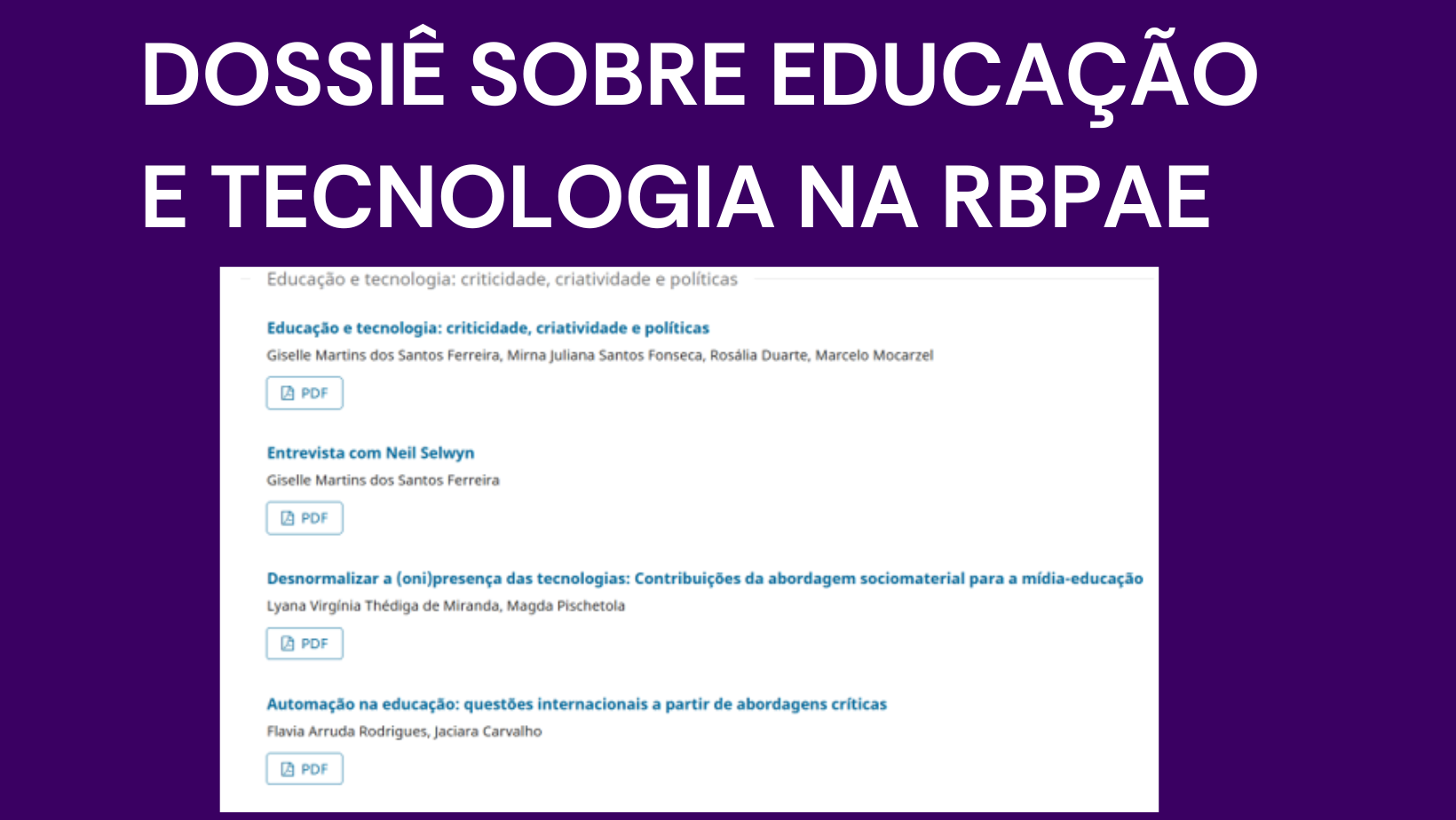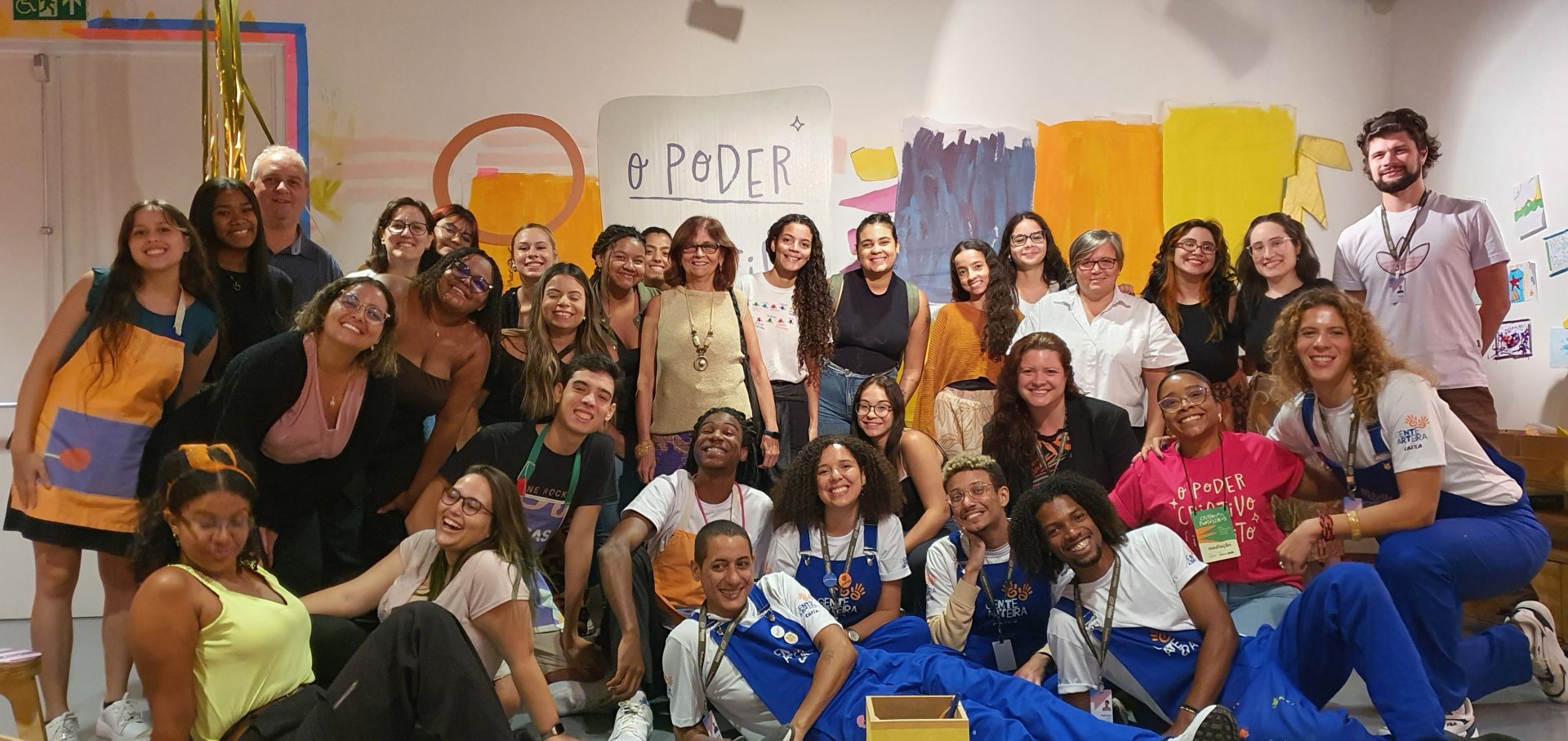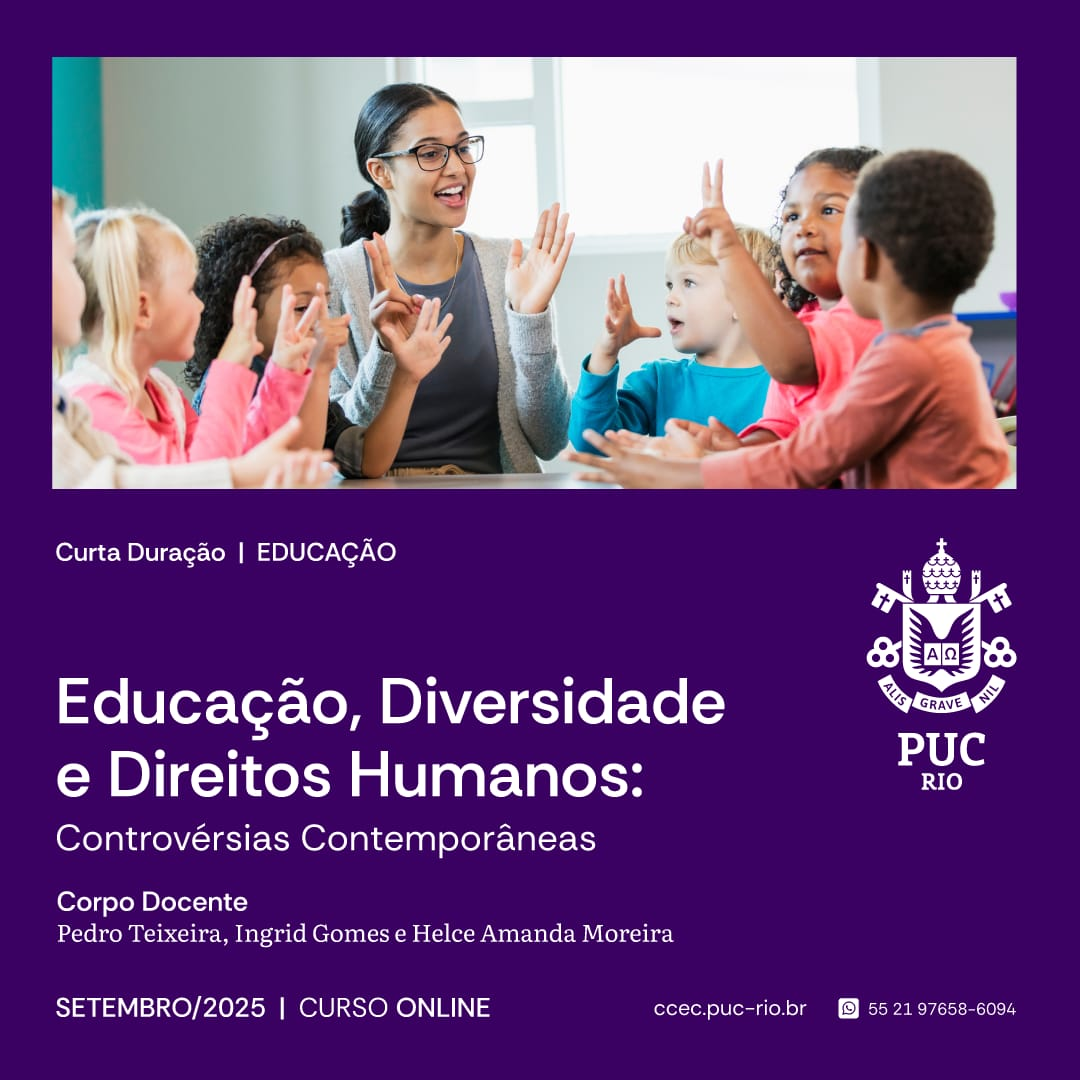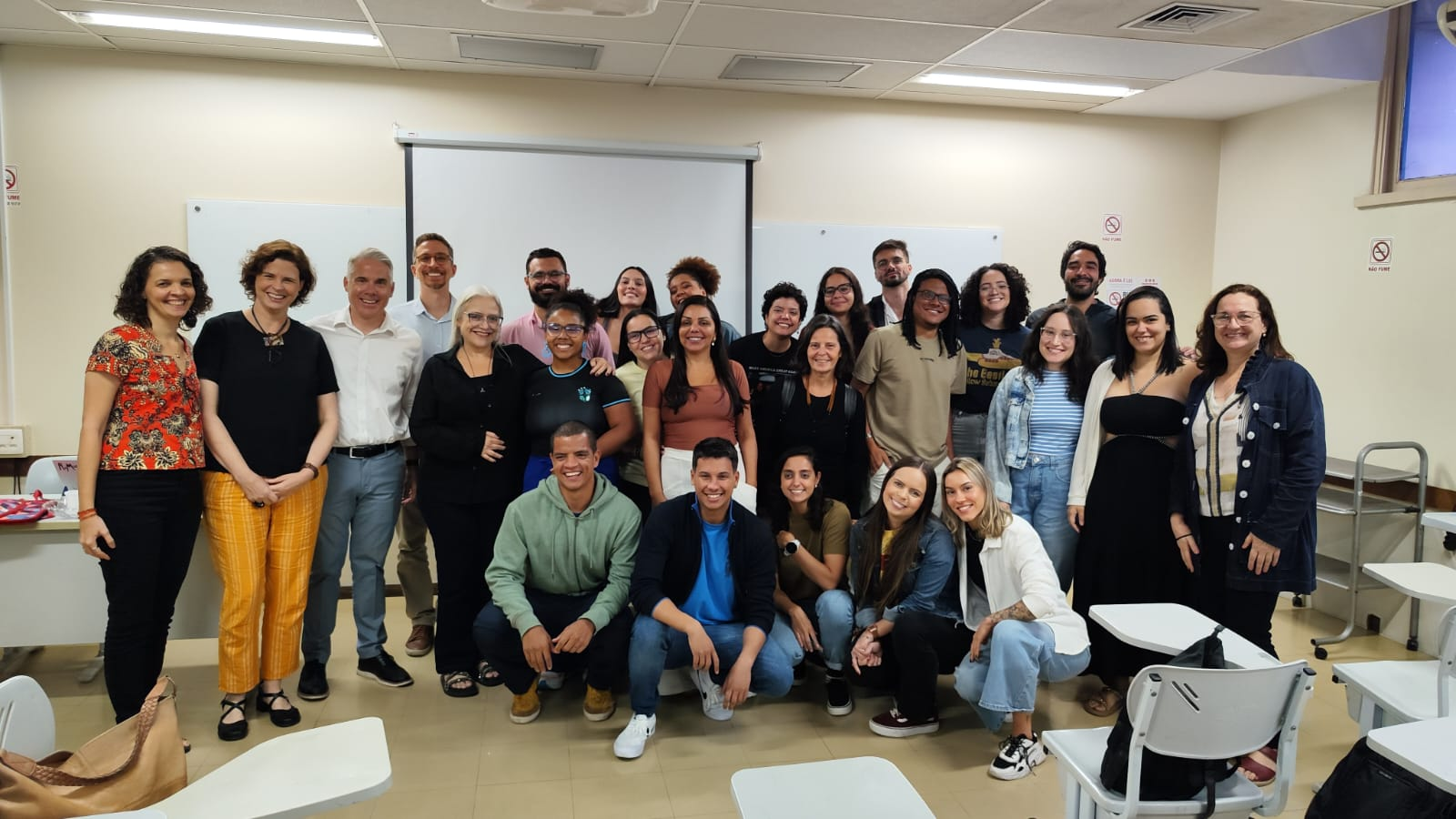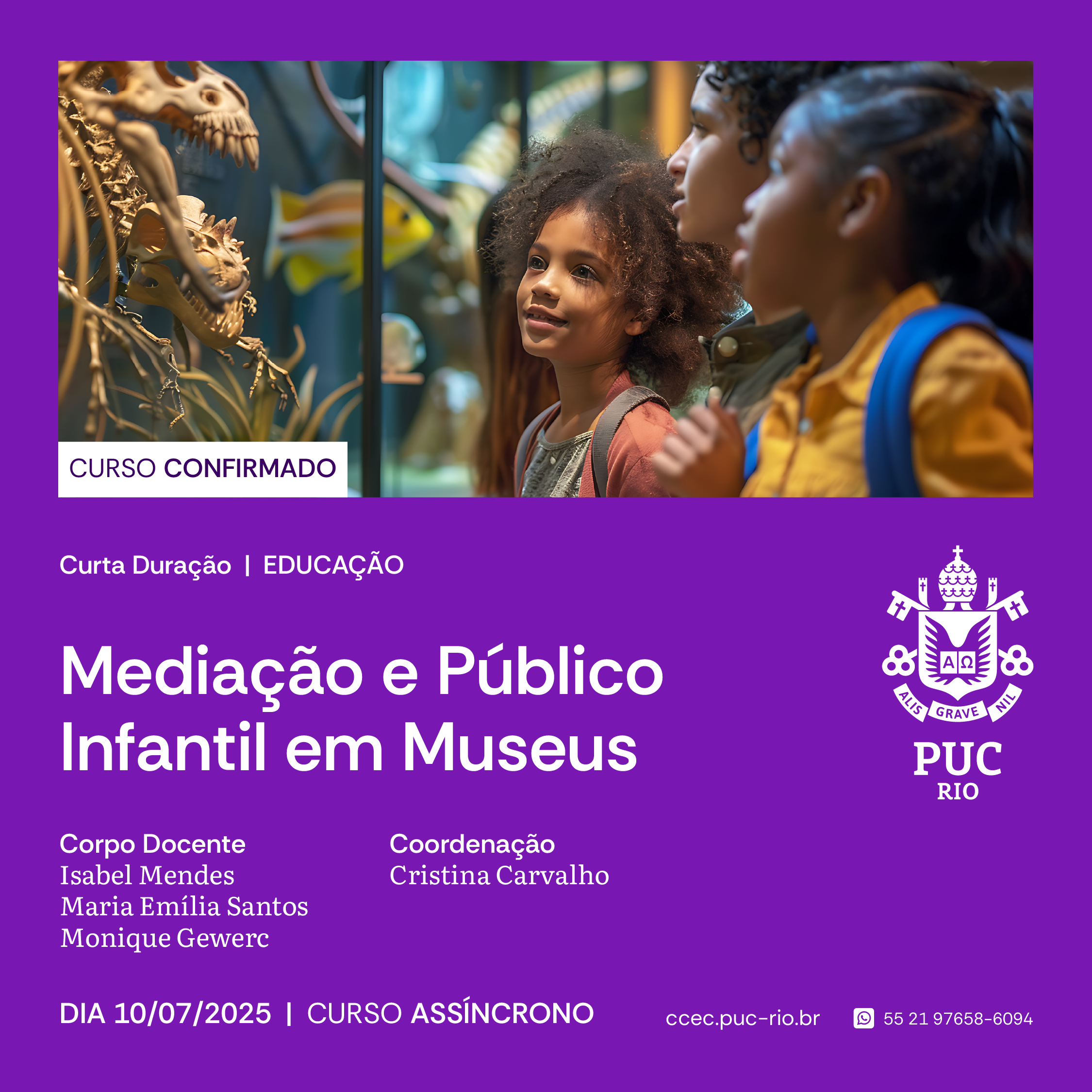
Graduação
Você pode ingressar na PUC-Rio por três formas:
|

Especialização e Extensão
As atividades de extensão são realizadas através dos cursos:
|

Revista Educação Online
| A Revista Educação Online publica artigos em fluxo contínuo, com revisão por pares, em sistema de avaliação duplo-cega. |
Ensino
O Departamento de Educação da PUC-Rio se caracteriza como um espaço plural e democrático de ensino e aprendizagem, voltado para a formação de excelência de profissionais para diversos campos de atuação, comprometidos com o desenvolvimento da formação humana, com sólida fundamentação teórico-prática e uma visão contextualizada de todo o processo educativo.
Pesquisa
Pioneirismo, tradição e atuação nacional e internacional são marcas da pesquisa do Departamento de Educação da PUC-Rio. Tendo sido o primeiro Programa de Pós-graduação em Educação do país, dedica-se a formar mestres e doutores e desenvolver pesquisas sobre a educação, em suas diferentes dimensões, em especial a educação básica pública.
Extensão
As atividades de extensão do Departamento de Educação da PUC-Rio buscam ampliar os horizontes de atuação da universidade em diálogo com pessoas, conhecimentos e instituições sociais. Através de cursos de especialização e extensão e de núcleos, realizamos formações e ações de apoio ao público interno e externo à PUC-Rio.
Quadro Docente
-
Alberto Tornaghi
Este endereço para e-mail está protegido contra spambots. Você precisa habilitar o JavaScript para visualizá-lo. | Lattes -
Alexandra Pena
Este endereço para e-mail está protegido contra spambots. Você precisa habilitar o JavaScript para visualizá-lo. | Lattes -
Hedy Vasconcellos
Este endereço para e-mail está protegido contra spambots. Você precisa habilitar o JavaScript para visualizá-lo. | Lattes -
José Carmello Carvalho
Este endereço para e-mail está protegido contra spambots. Você precisa habilitar o JavaScript para visualizá-lo. | Lattes -
Maria Elisa Almeida
Este endereço para e-mail está protegido contra spambots. Você precisa habilitar o JavaScript para visualizá-lo. | Lattes -
Mirna Fonseca
Este endereço para e-mail está protegido contra spambots. Você precisa habilitar o JavaScript para visualizá-lo. | Lattes -
Simone França
Este endereço para e-mail está protegido contra spambots. Você precisa habilitar o JavaScript para visualizá-lo. | Lattes -
Zaia Brandão
Este endereço para e-mail está protegido contra spambots. Você precisa habilitar o JavaScript para visualizá-lo. | Lattes



